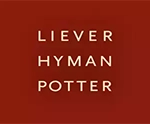From the Desk of Adam K. Levin, Esq. (certified as a specialist in the practice of workers’ compensation law by the Pennsylvania Bar Association’s Section on Workers’ Compensation Law as authorized by the Pennsylvania Supreme Court).
Payes v. WCAB (Commonwealth PA State Police), 50 MAP 201 (PA Oct. 30, 2013)
A twelve year veteran of the Pennsylvania State Police was driving back to his barracks in the early morning darkness, when a woman dressed in all black ran in front of his patrol car. The Trooper’s car struck the woman, who flipped over his car onto the highway. The trooper stopped and attempted mouth-to-mouth resuscitation, with the victim bleeding from the mouth. At the same time, the Trooper had to divert oncoming traffic to prevent them both from being hit. The woman was pronounced dead at the scene. After a brief leave, the Trooper returned to work to find that he suffered from such anxiety and stress that he could not continue to perform his duties as a state trooper.
The workers’ compensation judge (WCJ) reasoned that while state troopers are exposed to death, murder, severe personal injury, crimes, and other violent activities, the circumstances confronted by the Trooper, which occurred directly to him when the victim darted in front of his vehicle, and the events which occurred immediately when he attempted to save her life, were not normal for a state trooper but instead were extraordinary and unusual events. The Workers’ Compensation Appeal Board (WCAB) reversed the WCJ and opined that even a gruesome tragedy like the one experienced by the Trooper was a foreseeable part of a trooper’s job. The Commonwealth Court of PA agreed with the WCAB and held that state trooper’s can be expected to witness horrible tragedy and may be expected to encounter maimed adults, injured children, violent death, and may even have to take someone’s life.
The PA Supreme Court saw things differently and held as follows:
The Commonwealth Court erred by not accepting the well-supported facts found by the WCJ establishing the existence an extraordinarily unusual and distressing single work-related event experienced by [the Trooper], resulting in his disabling mental condition, where such a single and comprehensive work-related event constituted an abnormal working condition as a matter of law.
In other words, the Supreme Court found that the WCAB and the Commonwealth Court improperly broke down each of the Trooper’s activities on that tragic night and found each one of them a normal and foreseeable part of his job. However, the Supreme Court reversed the Commonwealth Court and ordered the reinstatement of Trooper’s work comp benefits because when viewed as one event, as the WCJ had properly done, the series of interconnected events constituted an abnormal working condition and was therefore compensable under the PA Work Comp Act.
At Liever, Hyman & Potter, P.C., we handle cases on behalf of injured workers who are entitled to work comp benefits. An experienced attorney for work comp and personal injury at our firm can assist you with these types of matters.

